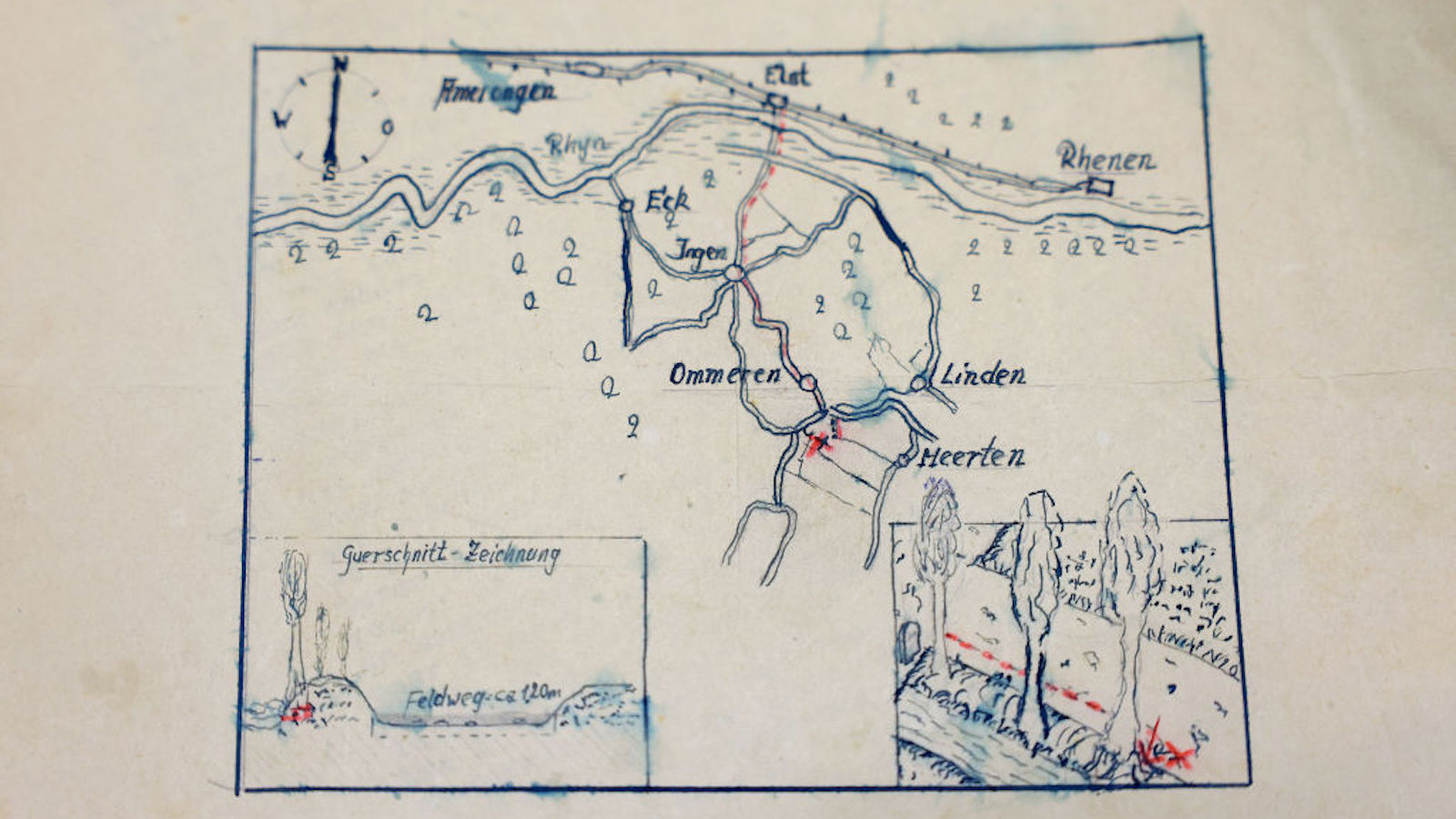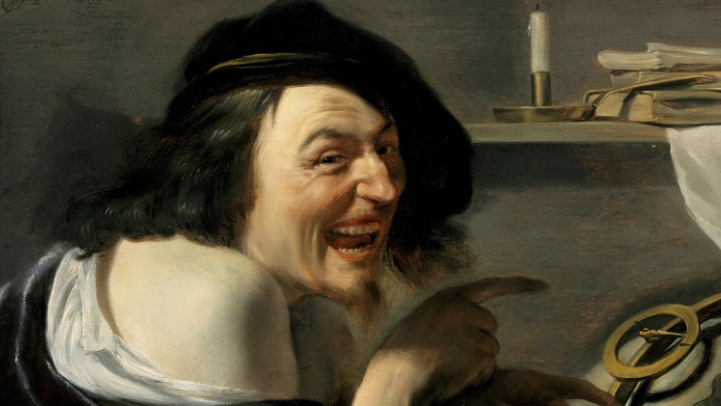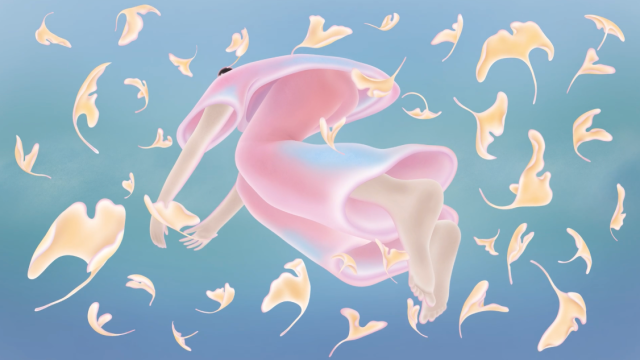Gallows humor: The surprising benefits of dark laughter

- Gallows humor is the enjoyment of dark and twisted humor that takes its name from those about to be hanged
- Gallows humor is often found on the most violent and hopeless battlefields. Those who have nearly everything taken from them have nothing left but to laugh
- There's research to say that enjoying "sick" or "dark" humor might actually be good for you
“In Treblinka, where a day’s food was some stale bread and a cup of rotting soup, one prisoner cautions a fellow inmate against gluttony. ‘Hey Moshe, don’t overeat. Think of us who will have to carry you.’” — Elie Wiesel, Night
Only the privileged get offended. When you’ve seen the worst of what life has to offer — when you’ve lived in the gutter, come through a nadir, and reached the absolute bottom of the barrel — the world takes on a different hue. Things that were once so very serious now look like little more than baubles. You might just find the gravest scenarios insanely funny.
This is the curious phenomenon known as “gallows humor” – the wry, sardonic, and often ironic form of comedy that finds fun in the darkest corners of human experience. It takes its name from those sentenced to be hanged (a gallows being a wooden frame with a crossbeam from which a noose is suspended). Taboos get mocked and the gravity of yesterday takes on the absurdity of a clown’s practical joke. We might call these “sick jokes” or “cruel humor,” but the content is much the same. To those beyond the gallows — those privileged spectators and happy denizens of the living — these jokes seem twisted. They’re the depraved ramblings of madmen.
Consider the following:
“Mommy, mommy, why is dad so pale?” “Shut up, kid, and keep digging.”
“Mommy, mommy, why do I keep walking in circles” “Be quiet, or I’ll nail your other foot to the ground.”
These are examples of gallows humor. They take something sacred — in this case, maternal love and the protection of children — and they turn it upside down to embrace some great taboo. Some readers will find them funny. Others will find them repulsive. A few might even be penning a complaint to my editor. Why, then, do some people gravitate to gallows humor? And what can it teach us about the human condition?
No heroes here
When you read some of the accounts from World War One, you recognize it’s not exaggerating to call it hell on Earth. Not only were the conditions horrific — freezing cold mud and constantly damp everything — but you lived, every day, with the prospect that you might die tomorrow. Soldiers generally spent their time between two extremes: long stretches of boredom punctuated by insane violence, often in the form of hopeless charges which would almost certainly wound or kill them. It was like perpetually being on death row, and never knowing the execution date. As soldiers have done for millennia, the men in the trenches of World War One developed their own kind of coping mechanism: gallows humor.
One form of gallows humor is the surreal and absurdist acceptance of the pointlessness of it all. A common song that men would sing was, “We’re here, because we’re here, because we’re here, because we’re here.” Long had the young boys and idealistic patriots been disabused of the notions of heroism and nobility. There were no heroes here, only fatalism and death. And, into this, the only power soldiers had left to them was to meet both with a mocking grin.
Dan Carlin, in his excellent Hardcore History, references the British war correspondent Phillip Gibbs. Here’s what Gibbs wrote:
“It was astonishing how loudly one laughed at tales of gruesome things, of war’s brutality — I, with the rest of them. I think at the bottom of it was a sense of the ironical contrast between the normal ways of civilian life, and this hark back to the caveman code…. It was the laughter of mortals at the trick which had been played on them by an ironical fate. They had been taught to believe that the whole object of life was to reach out to beauty and love…Now that ideal had broken like a china vase, dashed to hard ground. The contrast between that and this was devastating.”
Soldiers would bet on who would be hit, who would lose an arm, who would die, and who would crack next. They’d pick up limbs and say, “bit of Bill…more Bill…oh, Bill’s ugly mug”. Gallows humor was, as Gibbs put it, “the protective armor of men’s souls.” What is there left of a man when he lives in such a world?
Sick jokes and inappropriate humor
Most people today do not live with the constant fear of death. Most of us are not the PTSD survivors of warzones, torture rooms, and the fear of death. And yet, people still like sick humor. There’s a large proportion of society who enjoy upending sacred values and laughing at that which will obviously cause offense to people.
There’s a ton of research on the “theory of humor,” but perhaps three theories best explain gallows humor:
- Superiority theory says that we find things funny by asserting our dominance over the mocked item. So, laughing at taboos, death, and the terrible is a way of telling the world they have no power over us.
- Relief theory says we laugh to vent anxiety or stress at something. We make sick jokes because their content is actually deeply traumatic, so we seek to relieve our fear of it.
- Benign violation theory says that jokes are a way to violate taboos in a safe way. We can say “I’m joking” after saying something hugely inappropriate and, mostly, be let off the hook.
The mocked cannot be feared
I think I gravitate best to the superiority and relief theories, and I suspect Phillip Gibbs might have, too. When we make sick jokes or enjoy gallows humor, we are building up armor. We are venting our fear of the world so that we can return to it calmer.
Interestingly, a 2017 paper implies just that. A team from Austria had 156 participants with mixed backgrounds look at some dark humor – comic strips about suicide, pain, and other taboos. What the study found was, first, that the more intelligent participants tended to like gallows humor but also (and more importantly) they were less aggressive or violent in everyday life. As they write, “The most surprising result is that subjects who show the highest values with respect to black humor preference … show the lowest values regarding mood disturbance and aggression.”
So, perhaps gallows humor is a balm. It’s telling, for example, how medical professionals in emergency rooms and hospitals often enjoy a lot of gallows humor. It clearly serves as some kind of inoculation. So, perhaps rather than be offended and repulsed by dark humor, we should embrace it more. Take out your iconoclastic hammer and smash down those forbidden topics and taboos. Mock what must never be mocked. While life is infinitely easier for us than the traumatic hellscape of the World War One trenches, perhaps we all might benefit from the armor that comes from gallows humor.
Jonny Thomson is our resident philosopher and the author of The Well, a weekly newsletter that explores the biggest questions occupying the world’s brightest minds. Click here to subscribe.





